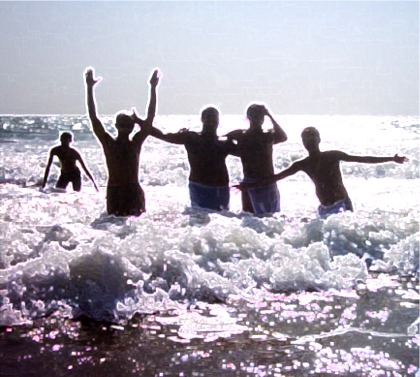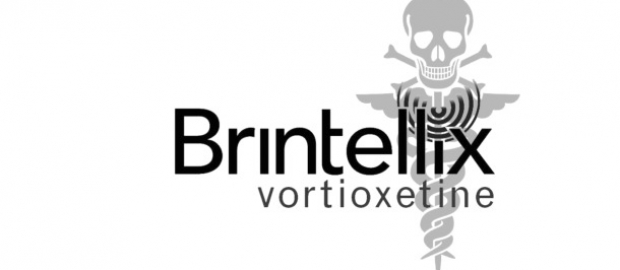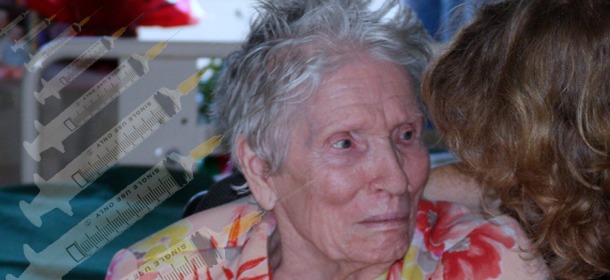Diseases/Conditions
Suntans Have Nothing to Do with Cancer, But Most Sunscreens Do
The CDC’s new report continues the myth that sunscreens protect you from cancer, again demonstrating how little reality exists in their fear mongering.
The Centers for Disease Control (CDC) has just come out with its annual be-afraid-of-the-sun report in its efforts to keep the sunscreen business profitable.
The report starts out with fear mongering about the dangers of skin cancer and then goes on to say:
The results indicated that although protective behaviors such as sunscreen use, shade use, and wearing long clothing to the ankles have increased in recent years, sunburn prevalence remains high, with 50.1% of all adults and 65.6% of whites aged 18–29 years reporting at least one sunburn in the past 12 months. These results suggest that additional efforts are needed to identify and implement effective strategies targeting younger adults to improve their sun protective behaviors and prevent sunburn and ultimately skin cancer. [Emphasis mine.]
Imagine that! If you go into the sun, you should wear long clothing down to your ankles! One must wonder how they forgot to point out that arms can also be exposed to the sun, requiring their covering, too. And what about feet and hands? Is it safe to expose them, or should they be covered, too?
The Absurdity
The CDC’s report is obviously absurd, but the most ridiculous thing of all is that they never mention that the most effective protection against sun-induced skin cancer is a tan! The risk is from sunburns, not tans. People with tans are much less likely to get burned. Of course the CDC knows that. It’s evident in their own report:
Sunburn typically occurs after intermittent exposure, and the risk for melanoma increases with an increasing number of sunburns during all periods of life. [Emphasis mine.]
Sunburns, not tans, are what the CDC associates with melanoma. In fact, the data they use in their report is related to sunburns, not tans or even total amount of time in the sun:
To evaluate trends in sunburn and sun protective behaviors among persons aged 18–29 years, CDC and the National Cancer Institute analyzed data from the 2000, 2003, 2005, 2008, and 2010 National Health Interview Survey (NHIS). [Emphasis mine.]
Notice that the single best way for most people to protect themselves from sunburn, getting in the sun often to get and keep a tan, is completely ignored.
Clearly, the CDC knows that suntans are unrelated to the skin cancer, melanoma, and one can probably assume that they have some awareness that suntans come from the sun. So why the fear mongering? Why aren’t they interested in promoting the health benefits of the sun? It’s well known that sunning provides us with Vitamin D, which is a critical nutrient for many processes in the body. Severe lack of Vitamin D is well known to be the cause of ricketts and its bone deformities. Its deficit is also becoming well accepted as related to a range of health problems, including breast, colon, and prostate cancers.
Yet, this agency that supposedly exists to help protect our health completely ignores the health-providing benefits of the sun.
Sunscreens
Then, there’s that whole issue about whether sunscreen lotions prevent melanoma in any case, as the Environmental Working Group points out in “Sunscreens Exposed: Nine Surprising Truths”. The fact is that the evidence supporting the protective effects of sunscreens is limited and opposed by research showing it not to be true.
Let’s not forget the fact that most sunscreen lotions are, themselves, likely the cause of some cancer. They may even cause melanoma, the cancer people use them to prevent. They contain toxic chemicals, such as oxybenzone, PABA, benzophenone-3, homosalate, octyl-methoxycinnamate (OMC) and 4-methyl-benzylidene camphor (4- MBC).
So, truly we’re left with only one reasonable way to protect ourselves from sunburns, and that is simply to get suntans. While there are a few people who are limited in their sun exposure by not tanning, most people can spend good sun time. Even those with a tendency to burn can—and should—get out in the sun.
It should be noted that Vitamin D production is inversely related to how much melanin is in the skin. People with dark skin require more sun time, and those whose skin is light require significantly less. Therefore, dark-skinned people in high northern latitudes need significantly more sun exposure.
Why?
So why is this agency, which supposedly exists to promote health, doing something as stupid as trying to keep people out of the sun and keep them slathering toxic chemicals on their skin? We can find out by first looking at who owns some of the biggest sunscreen products:
- Coppertone is owned by Schering-Plough, a pharmaceutical corporation.
- Neutrogena and Aveeno are owned by Johnson & Johnson, a pharmaceutical corporation.
- Olay is the biggest skin care company in the world.
- Vanicream is owned by Pharmaceutical Specialties Incorporated.
- Bull Frog is owned by Chattem, a pharmaceutical corporation.
- LaRoche and Ombrelle and are owned by L’Oreal.
Major multinational corporations, including major pharmaceutical ones, are invested in sunscreens. Who really controls the CDC and other agencies that are supposedly for the public’s benefit? Those, and other, multinational corporations.
Thus, no matter how distorted and twisted and dishonest their arguments must be, the CDC and others continue to promulgate the lie that sunscreens can protect you from cancer. The advice to cover up in the sun? That’s just a smokescreen to hide the real goal of promoting their benefactors.
Graphic from MorgueFile (Filter Applied)
Sources:
Tagged big pharma, pharmaceutical drugs, pharmaceuticals, skin cancer fear mongering, sunburn cancer, sunburn tan, sunscreen melanoma, sunscreens cancer, sunscreens melanoma, suntan cancer















Pingback: How to Get Vitamin D Without the Sun | Gaia Health
Pingback: Skip Alzheimer’s by Sunning & Skipping Sunscreens | Gaia Health
Pingback: How to Get Vitamin D Without the Sun | Wes Bartell
Pingback: Prevent Alzheimer’s by Sunning & Skipping Sunscreens
Pingback: Surprising Studies on Sun Safety + Top 10 Sunscreen FAVS – Peace on the Skin & Peace Within